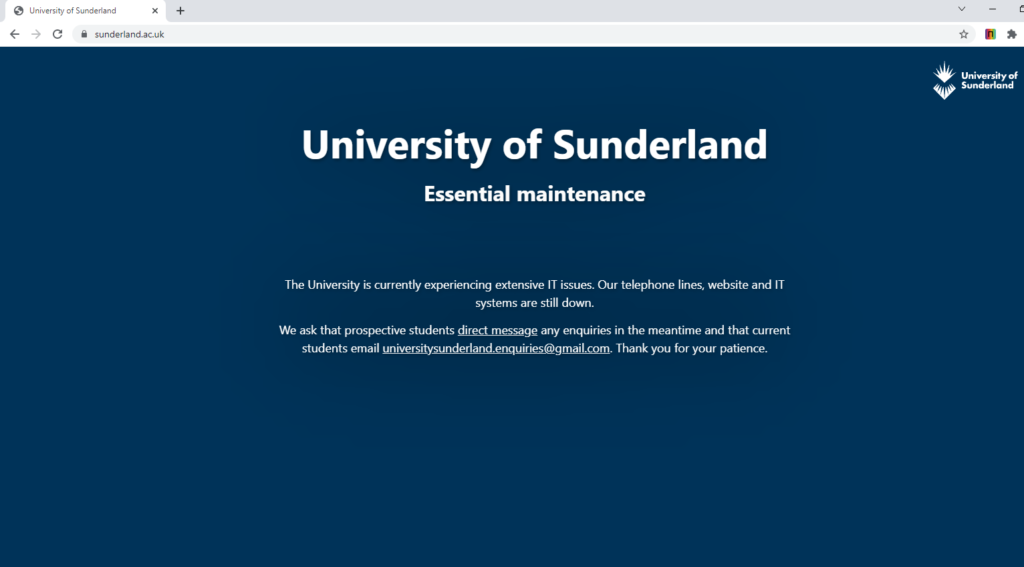University of Sunderland on the 12th day of October, 2021 suffered a series of downtime on its IT systems, telephone lines and websites. This was revealed on its twitter page and have stated that it “has all the hallmarks of a cyber-attack.”
The Sunderland Echo a local newspaper, reported that staff members were encountering difficulties accessing their emails, online classes had been canceled and the official website of the university was down.
The university said that it is working with the police to try and resolve the problem and will continue face-to-face teaching as much as possible.
The university stated that: “We intend to continue face to face teaching as far as possible and will continue to update our staff and students, as well as continue working with the police.
“We take the security of our systems extremely seriously and we will resolve this as quickly as we can. We ask that prospective students direct message any inquiries in the meantime and that current students email universitysunderland.enquiries@gmail.com.
“Thank you for your patience.”
This suspected attack follows a surge of attacks targeting schools, universities and colleges during the COVID-19 crisis. North-East of England University, Newcastle University and Northumbria University have been one of the fatal victims of such attack spanning from last year. In April 2021, the University of Hertfordshire and the University of Portsmouth also suffered network outages lasting days after ransomware threat actors struck.
Danny Lopez, CEO at Glasswall Solutions, while commenting on the story, said: “Reports of universities being the victim of cyber-attacks have become increasingly common over the last 18-months. It’s concerning considering the extensive damage caused by lost data – for both students and staff – and access to vital educational services. The cyber-attack will inevitably have a significant impact on productivity. In addition, just as the new university term begins, students and staff have lost access to their campus network, which will undoubtedly affect teaching and access to study resources.
“Educational institutions should adopt a ‘defense-in-depth’ approach to cybersecurity, as advised by the NCSC. This means using multiple layers of defense with several mitigations, which creates more opportunities to detect malware and prevent it from doing widespread harm to the institution.”
Proper Intrusion Detection and Prevention mechanisms should be adopted as anyone could be susceptible to an attack more especially where the agenda is financial gain.

